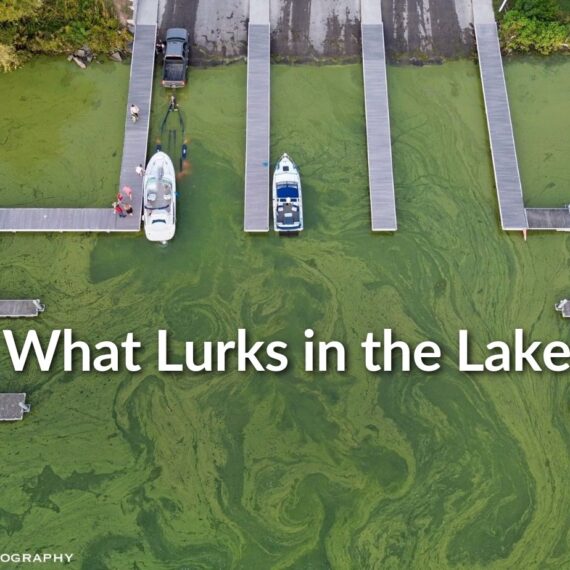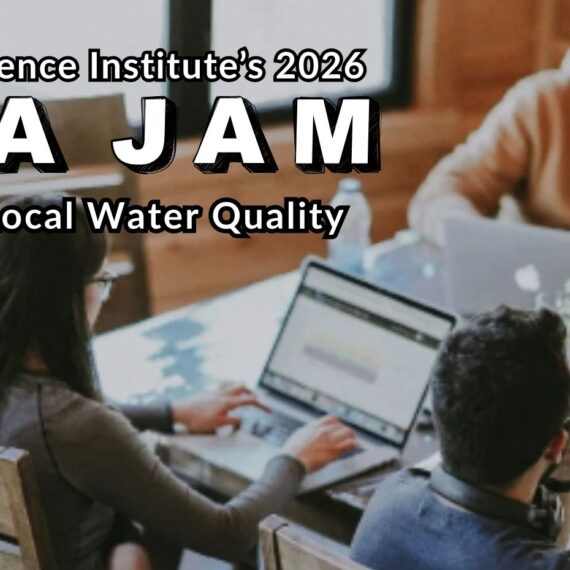CSI Ithaca Investigates Local Water Quality
If you’ve ever needed your water tested, you might have come to the Community Science Institute (CSI). Tucked away on the second floor of Langmuir Lab by the Ithaca airport, CSI does much more than residential water testing. Founded in 2002, the Community Science Institute is a nonprofit organization that operates a certified water testing lab and partners with groups of volunteers to monitor and protect local water quality. Certified labs are regulated by the New York State Department of Health and test results can be used for legal purposes, like selling a home, or maintaining a kitchen for food production. CSI volunteers collect water samples from hundreds of locations in the Cayuga Lake watershed and New York’s Southern Tier to collect data about important issues like urban development, wastewater treatment, and fracking.
CSI has three types of volunteer programs, each with a slightly different focus, to help provide an understanding of the water resources that our region is fortunate to have. All of the data produced from these volunteer programs is publicly available online for free at: www.communityscience.org/database. While some people might assume that the DEC, EPA, or other government entity takes care of this important task of gathering water quality data, the scope and frequency of water monitoring events conducted by CSI volunteers is unparalleled. Water monitoring studies by government agencies often have a wide focus, are done every 5-6 years, or occur in response to an already existing problem.
The Synoptic Sampling program, CSI’s longest-running volunteer partnership, involves teams of volunteers going to a set of locations in a watershed, like Six Mile Creek, on the same day at roughly the same time. Volunteers record visual observations, measure water temperature, collect water samples and transport them to the CSI lab. All the samples have chain-of-custody documentation to ensure sample integrity. Once the samples arrive at the lab they are tested for a set of locally relevant parameters: phosphorus, nitrates, turbidity, hardness, chloride, E. coli bacteria, and more. In recent years, CSI has added a few parameters related to fracking like barium, strontium, and radioactivity, just to be sure the baseline data exists. Watersheds are typically sampled 4-6 times per year when funding is adequate. CSI aims to collect samples under both normal flow and storm water conditions. By monitoring on a regular basis over the years, CSI’s data can be used to look for trends and identify problems.
One of the problems identified as a result of the Synoptic Sampling program is high levels of E. coli bacteria in Trumansburg Creek, downstream of the aging wastewater treatment plant in Trumansburg. Repeated samples from upstream and downstream of the wastewater treatment plant indicated that bacteria levels exceeded the plant’s permit levels and made for unsafe swimming further downstream at the Camp Barton Boy Scout Camp. The plant is now required to test their effluent, as well as water from Trumansburg Creek, once a week and is working with the DEC to assess and repair the plant. Without the regular sampling by CSI volunteers, this problem may have gone unnoticed for much longer.
While the Synoptic Sampling program gives us a snapshot of water quality on a given day, CSI’s Biological Monitoring program allows us to look at water quality over the long-term. Biological Monitoring involves collecting samples of benthic macroinvertebrates (BMI), which are aquatic organisms that are visible to the naked eye. Volunteers follow a sampling protocol used by the DEC to collect these stream-dwellers in a net and preserve them for later identification. Volunteers use microscopes to identify and count organisms. Since pollution tolerance varies among these aquatic organisms that live in the stream year-round, the makeup of the community can tell us a lot about water quality over the course of a season. Recent BMI samples taken downstream of the Trumansburg sewage treatment plant showed the stream to be slightly impacted, while most other local streams show no impact.
CSI’s third volunteer program, Red Flag monitoring, has its focus outside Tompkins County, and aims to collect baseline data related to hydrofracking. By following a strict quality control protocol, volunteers are able to produce data in the field that is comparable to certified lab data. Results from all of CSI’s volunteer programs can be found online.
Whether you need your well tested, are curious about the streams in your neighborhood, or want to explore years of local data, CSI is your local resource for everything water-related. If you’re interested in finding out more or getting involved as a volunteer, visit the CSI website www.communityscience.org and mark your calendar for April 3, CSI’s 10th Annual Volunteer Symposium at 6:30 PM at the Tompkins County Public Library BorgWarner Room.
This article appeared in the February 17 issue of Tompkins Weekly as party of the weekly series “Signs of Sustainability”.



